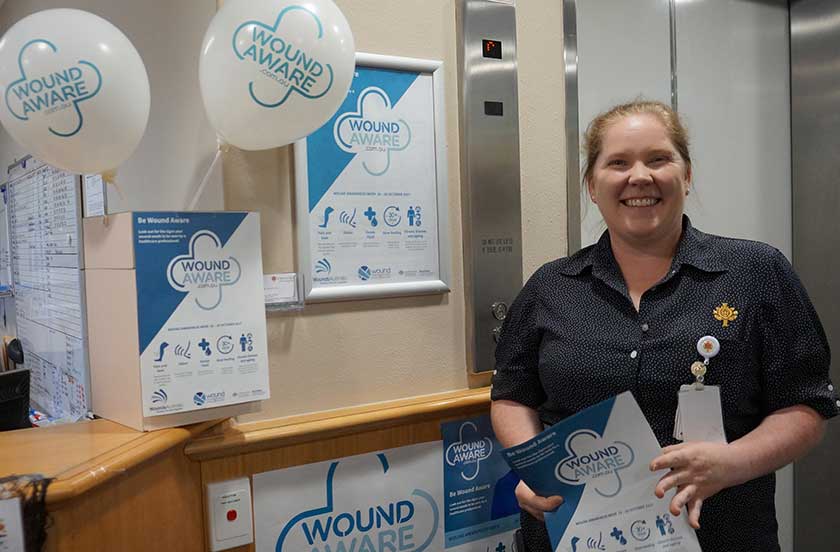How to be wound aware
Did you know that nearly half a million Australians a day suffer from chronic wounds? This can cost up to $10 000 per patient, adding an estimated $3 billion to the health care system.
18 Oct 2017

18 October 2017
Clinical Nurse Specialist Amy Staples is encouraging people to learn more about wound care as part of Wound Awareness Week.
“There are lots of simple things you can do to make sure your wound heals properly, and some early warning signs that you may need to check with your GP or health care professional,” says Amy.
“Wounds usually heal quickly and don’t cause problems for our patients, however if you have a wound that takes a month or more to heal, or if it keeps coming back, you need to seek medical advice.
“While you stay in our hospital, our nursing caregivers will keep a close eye on your comfort and recovery. We encourage you and your loved ones to partner with us and let us know if there are any symptoms that seem unusual,” says Amy.
Some tips for keeping your wound healthy
- Stop or reduce smoking
- Keep your fluid intake up, avoiding too much alcohol and caffeine
- Try not to remove dressings or treatments that have been applied by your health practitioner unless otherwise advised
- Avoid exposing your wound to air and avoid bathing in the sea.
When to see your doctor or health practitioner
- If the area around your wound becomes red, swollen and hot
- If your wound becomes painful
- If fluid from the wound becomes discoloured, thick or excessive
- If your wound has not noticeably decreased in size over four to six weeks
- If your wound bleeds regularly or profusely
- If the wound becomes black or yellow
- If you feel unwell or develop a temperature.
Find out more and become wound aware – visit woundaware.com.au

